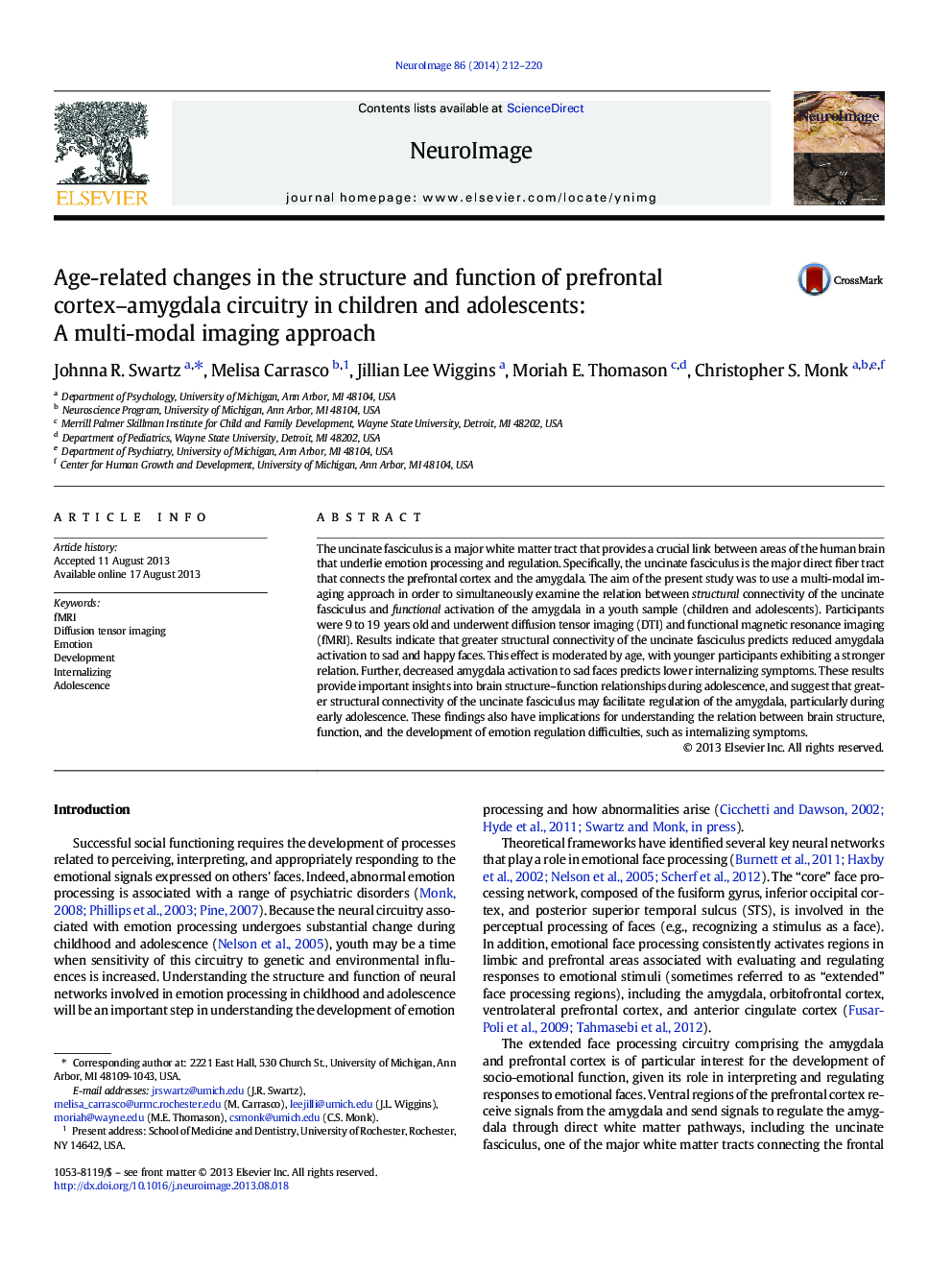| Article ID | Journal | Published Year | Pages | File Type |
|---|---|---|---|---|
| 6027764 | NeuroImage | 2014 | 9 Pages |
Abstract
The uncinate fasciculus is a major white matter tract that provides a crucial link between areas of the human brain that underlie emotion processing and regulation. Specifically, the uncinate fasciculus is the major direct fiber tract that connects the prefrontal cortex and the amygdala. The aim of the present study was to use a multi-modal imaging approach in order to simultaneously examine the relation between structural connectivity of the uncinate fasciculus and functional activation of the amygdala in a youth sample (children and adolescents). Participants were 9 to 19Â years old and underwent diffusion tensor imaging (DTI) and functional magnetic resonance imaging (fMRI). Results indicate that greater structural connectivity of the uncinate fasciculus predicts reduced amygdala activation to sad and happy faces. This effect is moderated by age, with younger participants exhibiting a stronger relation. Further, decreased amygdala activation to sad faces predicts lower internalizing symptoms. These results provide important insights into brain structure-function relationships during adolescence, and suggest that greater structural connectivity of the uncinate fasciculus may facilitate regulation of the amygdala, particularly during early adolescence. These findings also have implications for understanding the relation between brain structure, function, and the development of emotion regulation difficulties, such as internalizing symptoms.
Related Topics
Life Sciences
Neuroscience
Cognitive Neuroscience
Authors
Johnna R. Swartz, Melisa Carrasco, Jillian Lee Wiggins, Moriah E. Thomason, Christopher S. Monk,
